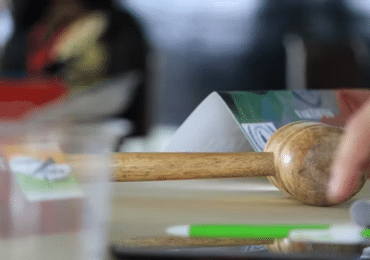Navigating the legal landscape can be daunting, especially when dealing with the intricacies of disability law. Whether you’re filing a claim for Social Security Disability Insurance (SSDI), appealing a denial, or dealing with workplace discrimination, a disability lawyer can be an invaluable ally. An experienced disability attorney can represent you and your interests with the knowledge and expertise to help you get the best outcome. Here’s what to consider when looking for a disability lawyer.

1. Fee Structure
When considering a disability lawyer, understanding their fee structure is crucial. Typically, disability lawyers work on a contingency fee basis, meaning they only get paid if you win your case. The fee is often a percentage of the back pay you are awarded. The lawyers dealing with Denial Of Benefits From MassMutual charge no fees unless your benefits get paid. Furthermore, the Social Security Administration (SSA) has set a cap on this fee, ensuring you are not overcharged. Always confirm the fee structure during your initial consultation to avoid any unwelcome surprises later.
Nonetheless, it’s important to remember that apart from the lawyer’s fee, other costs might be involved, such as those associated with obtaining medical records, postage, and photocopying. Some lawyers might charge these as additional costs or include them in their fees. It’s essential to clarify these points before making a decision. Knowing the full cost of hiring a lawyer will help you manage your expectations and budget more effectively.
2. Credentials and Experience
When searching for a disability lawyer, their credentials should be a top consideration. A J.D. (Juris Doctorate) from an accredited law school, bar membership, and a license to practice law in your state are all necessary qualifications. Additionally, seeking a lawyer who is board certified in disability law or a member of professional organizations, such as the National Organization of Social Security Claimants’ Representatives, can add another layer of assurance about their professional standing.
Experience is equally essential. Understanding the nuances of disability law requires extensive experience in handling various cases. Look for a lawyer with a solid track record in disability claims or appeals or one who specializes in the area of disability law relevant to your case. Their prior experience will be critical in anticipating issues, effectively arguing your case, and navigating through the complexities of the legal process.
3. Communication Style
Effective communication is a crucial element in any lawyer-client relationship. You need a disability lawyer who is knowledgeable and experienced but also transparent and responsive. They should discuss complex legal terms in a way you can understand, keep you informed about your case progress, and respond to your queries promptly. A lawyer who doesn’t return calls or emails, or leaves you feeling confused or uninformed, might not be the best fit for you.

In addition, consider the means of communication you prefer. Some prefer face-to-face meetings, while others are content with phone calls or email correspondence. Clarify how often and in which manner you will receive updates about your case. Your lawyer’s communication style must align with your expectations to ensure a smooth working relationship.
4. Professional Reputation
The legal landscape is highly competitive. A good disability lawyer will have a solid reputation in the industry and some level of name recognition. Researching their background, such as asking for references or reading reviews from past clients, can provide further insight into their work and what to expect if you hire them. It’s also helpful to look up any disciplinary actions against them to ensure they maintain the highest standards in their profession.
Hiring a disability lawyer can be intimidating, but taking your time and conducting thorough research will help you make an informed decision. Consider the credentials, fee structure, communication style, and professional reputation of prospective lawyers to find the right fit. With a knowledgeable and experienced legal ally, you can rest assured that your case will be handled with the utmost care and expertise.
5. Success Rate
The success rate should also be considered when hiring a disability lawyer. Each case is different, so having a history of positive outcomes doesn’t guarantee the same result in your case. However, keep an eye out for lawyers who have successfully represented clients with cases similar to yours and have led to successful outcomes.
Ask for examples from former or current clients to get an idea of the kind of results they have achieved. Additionally, inquire about cases that didn’t lead to a positive outcome and how those experiences informed the lawyer’s approach to future cases. Knowing a disability lawyer’s success rate can provide valuable insight into their ability and help you decide whether they are the right fit for your case.
6. Resources and Network
A strong network of resources can be vital to winning a disability case. Lawyers with access to relevant medical professionals, vocational experts, benefits specialists, and other legal professionals can make the difference between success and failure. Ask to understand the lawyer’s network and what resources they can bring.
In some cases, such as appeals, it may be necessary to appeal a case in a higher court or request an administrative hearing. A disability lawyer with the experience and resources to go through these litigation channels can prove invaluable for achieving a successful outcome. Knowing what kind of network your lawyer can access is as vital as their experience and track record in disability law cases.
7. Personal Rapport
Consider the personal rapport with your lawyer. Do you feel comfortable and respected when communicating with them? Are they patient in explaining complex legal terms and responsive to your questions? The lawyer you choose must be someone who understands your situation and can connect with you on a personal level.
A positive relationship between you and your lawyer can be the difference between a successful and unsuccessful case. Researching their background and reading reviews from former clients can help you better understand whether they will be the right fit for your case. Feel free to ask questions about their experience, credentials, professional reputation, network of resources, fee structure, communication style, and success rate during your initial consultation.
Hiring a disability lawyer is a big decision. Make sure to consider the credentials, fee structure, communication style, professional reputation, success rate, and resources of prospective lawyers before choosing. With a knowledgeable and experienced legal ally, you can rest assured that your case will be handled with the utmost care and expertise.

